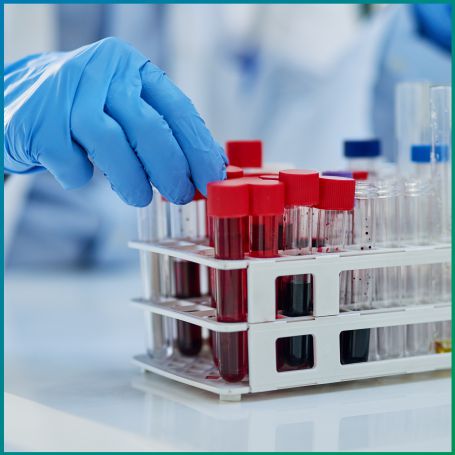
A haemoglobin blood test measures the amount of hemoglobin in your blood.

Hemoglobin levels can indicate how well your blood can carry oxygen and help diagnose conditions such as anemia, chronic disease, or bone marrow disorders. At Diagnopein, we offer comprehensive hemoglobin blood tests to provide critical insights into your overall health. Hemoglobin, a vital protein in red blood cells, is responsible for transporting oxygen throughout your body. Monitoring hemoglobin levels is crucial for diagnosing and managing various health conditions, including anemia and other blood disorders.
1] Diagnose Anemia: Low hemoglobin levels can indicate anemia, which may cause fatigue, weakness, and other symptoms.
2] Monitor Health Conditions: Helps in tracking the effectiveness of treatments for chronic diseases or conditions that affect blood health.
3] Assess Overall Health: Regular monitoring can provide insights into your overall well-being and detect potential health issues early.
At Diagnopein, we offer comprehensive, accurate, and timely diagnostic services, including the Haemoglobin slide processing test Pune. With our NABL-accredited labs, cutting-edge technology, and skilled technicians, you can be assured of reliable results every time. Get your results quickly, especially when time is crucial in detecting severe infections.
Competitive pricing without compromising on quality. Our team of experienced professionals ensures the test is conducted smoothly with minimal discomfort. We provide not just the Haemoglobin slide processing test results but insights into your health condition, helping you and your doctor make informed decisions about treatment. For more information call us at +91 9204 108108.
1. Haemoglobin
Measuring hemoglobin levels is crucial for diagnosing anemia, evaluating overall health, monitoring chronic diseases, and assessing how well certain treatments are working. Abnormal hemoglobin levels can indicate various health issues.
No special preparation is needed for a hemoglobin test. However, it’s best to follow any specific instructions provided by your healthcare provider.
Normal hemoglobin levels vary by age, sex, and overall health. Typically, normal ranges are: Men: 13.8 to 17.2 grams per deciliter (g/dL) Women: 12.1 to 15.1 g/dL Children: 11.0 to 16.0 g/dL Your healthcare provider will interpret your results based on these ranges and your specific health context.